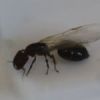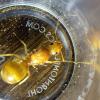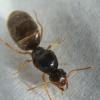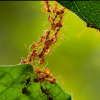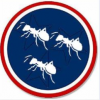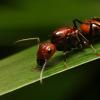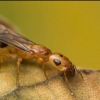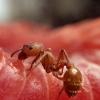I hardly trust the honey from the grocery store (depending on the brand, quality, organic or not, etc)... I don't think I'll ever feed milk to my colonies.
Good point!
But...
This may be naiive of me, but what are we wary of in industrial products? Antibiotics? Could they harm our ants?
Also, does non-organic honey contain pesticides? Wouldn't that harm the bees that produced it?
And "fake" honey is mostly corn or rice syrup ...which is not harmful to ants in itself...except IT could contain a lot of pesticides.
Personally, I don't grow feeder insects. I wack any fly that gets into my living space and feed it to the ants. I don't freeze nor boil the insects. Haven't had any ants die due to that, not ever had mites.
Was I just stupidly lucky thus far? Have you had antpocalypses due to unverified sources of feed?
Edited by skocko76, April 1 2021 - 10:15 AM.

